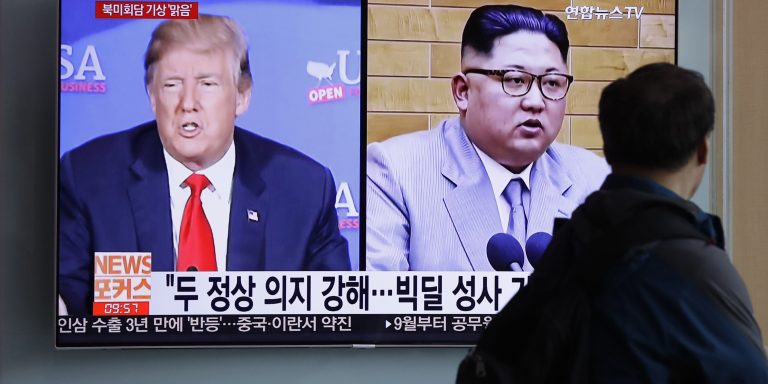INTELBRIEF
May 21, 2018
IntelBrief: Trump vs. Bolton on North Korea

- On May 17, President Trump added more confusion to the U.S. stance regarding North Korea and ‘the Libya Model.’
- Trump contradicted his National Security Advisor, John Bolton, saying ‘the Libya model’ for denuclearization was not what the U.S. wanted, then misstated what that model was.
- The Libyan model represents to Pyongyang that giving up nuclear programs is a path for regime change.
- The expected talks in Singapore may or may not take place on June 12.
.
There have been two recent efforts by the international community to convince a country to walk back from its nuclear weapons programs; the experiences in both Iran and Libya are likely to convince North Korea not to follow suit. The U.S. has reneged on the Joint Comprehensive Plan of Action (JCPOA), walking away last week from the multilateral agreement despite serious opposition by its closest allies. Considering the change in agreed upon terms from one administration to the next, North Korean leader Kim Jong Un certainly sees the risks in taking the word of an American administration. The effort to stop Libya’s nuclear program in 2003 was successful, but the 2011 overthrow of Libyan dictator Muammar Gaddafi might raise concerns for Pyongyang about what happens if they proceed down the same road.
On April 30, John Bolton, the new National Security Advisor for President Trump, stated on CBS’ ‘Face the Nation’ that the ‘Libya model’ was a model that the U.S. was considering with North Korea, in that North Korea would voluntarily and completely give up its nuclear program and all equipment in exchange for normalized international relations and economic assistance. The backlash to those comments was intense, from both North Korea and President Trump.
North Korea has been openly critical of the U.S. agreement with Libya. It is remarkable that a senior U.S. official trying to advance talks with North Korea would use Libya in such a high-profile statement. Pyongyang sees Gaddafi’s agreement with the Bush administration as sealing his doom. In March 2011, North Korea described the agreement as ’an invasion tactic to disarm the country.’ Its assessment of the Libyan agreement has not changed in the last 7 years; if anything, it has driven Kim Jong Un to push to achieve an operational credible nuclear deterrent.
President Trump directly contradicted Bolton’s statement during remarks with NATO Secretary-General Jens Stoltenberg on May 17. Trump stated, ‘the Libyan model isn't a model that we have at all when we're thinking of North Korea.’ But then President Trump misrepresented the 2003 agreement, saying ‘if you look at that model with Gaddafi, that was a total decimation. We went in there to beat him.’ This is actually the opposite of the strategy pursued by the U.S. Gaddafi agreed to the deal because he feared that Libya was next on the U.S. invasion list after Iraq, given the stated—though erroneous—excuse, weapons of mass destruction, that the U.S. and others said Baghdad possessed. The strategy in Libya was successful. Libya scrapped its nuclear program and the Bush administration normalized relations and provided some economic assistance.
Yet in 2011, the U.S. and its allies directly supported the rebels that overthrew the regime and killed Gaddafi. The lesson that North Korea presumably took from that was to withstand punishing sanctions long enough to achieve nuclear capability.
.
For tailored research and analysis, please contact: info@thesoufancenter.org
[video width="960" height="540" mp4="https://thesoufancenter.org/wp-content/uploads/2018/05/Final-Edit-1-198.mp4" poster="https://thesoufancenter.org/wp-content/uploads/2018/05/AP_18132500541173.jpg"][/video]